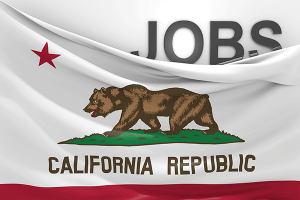 Governor Gavin Newsom last week announced the creation of the California Jobs First Council and an operational plan that will focus on streamlining the state’s economic and workforce development programs to create more jobs and prioritize industry sectors for future growth.
Governor Gavin Newsom last week announced the creation of the California Jobs First Council and an operational plan that will focus on streamlining the state’s economic and workforce development programs to create more jobs and prioritize industry sectors for future growth.
According to the Governor’s office, the Council will work alongside the Council for Career Education and in line with the Governor’s 2023 Executive Order that directed the creation of a Master Plan for Career Education to ensure that Californians have career pathways, develop the skills and find even more opportunities to be full beneficiaries of the state’s economy.
The Master Plan is aimed largely at aligning and simplifying the K-12, university, and workforce systems in California to support greater access to career education and jobs for all Californians. In connection with the Master Plan for Career Education, the Jobs First Operational Plan will highlight the ways in which workforce development can and should be a tool used by the state and the regional Jobs First Collaboratives to help Californians, particularly the most disinvested communities, in meeting the specific skillset needs of the state’s priority industry sectors.
“California has created more opportunities, more jobs, and more businesses than any other state, but we need to ensure that we’re all moving forward together,” Governor Newsom said. “Through this new council and these investments, we’re aligning all of our economic resources to create more jobs, faster for Californians in every community.”
The Council will be co-chaired by Dee Dee Myers, senior advisor to Governor Newsom and director of the Governor’s Office of Business and Economic Development, and Stewart Knox, secretary of Labor and Workforce Development. The Council will include the following state entities:
- Director of the Governor’s Office of Planning and Research: promoting alignment with General Plan guidelines and land use policies;
- Secretary of the California Natural Resources Agency: representing nature-based solutions and clean energy industries;
- Secretary of the California Department of Food and Agriculture: representing the agriculture industry;
- Secretary of the California Environmental Protection Agency: representing the circular economy;
- Secretary of the California Health and Human Services Agency: representing the health care industry and promoting jobs for disabled and disadvantaged workers;
Secretary of the California Department of Veterans Affairs: representing the more than 1.6 million former service members that reside in the state; and - President of the Public Utilities Commission: representing opportunities to advance California’s clean energy workforce of the future and economic opportunities for communities.

